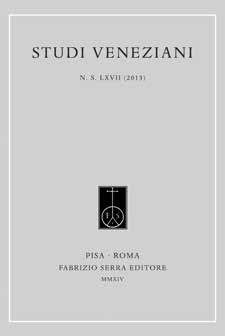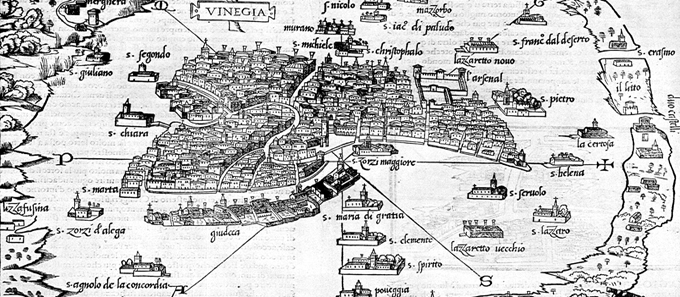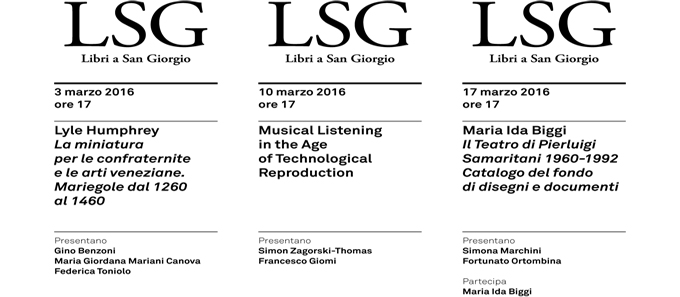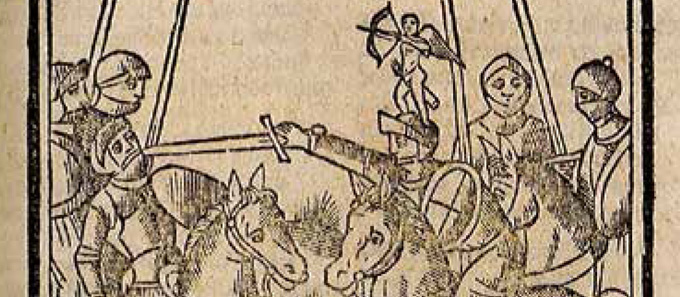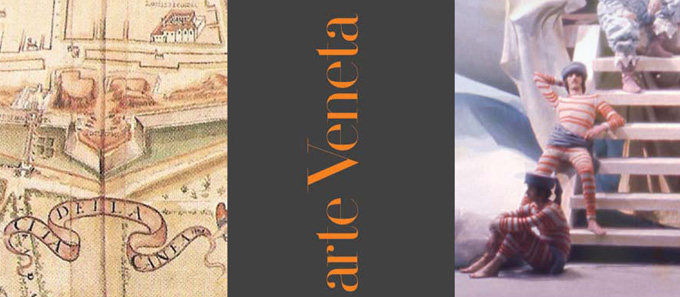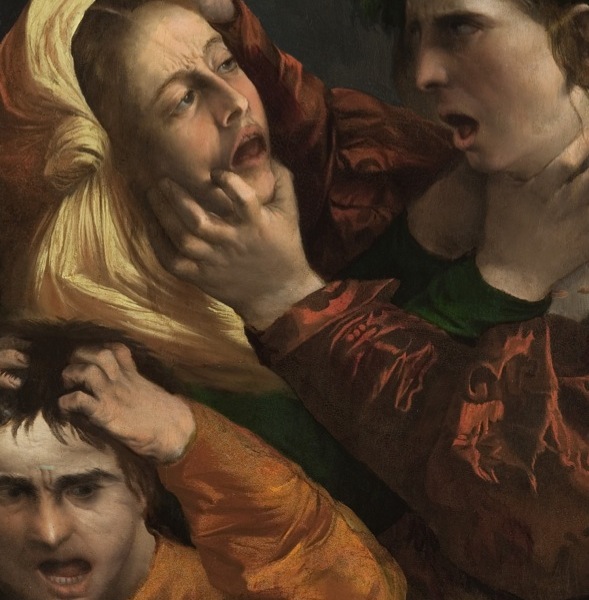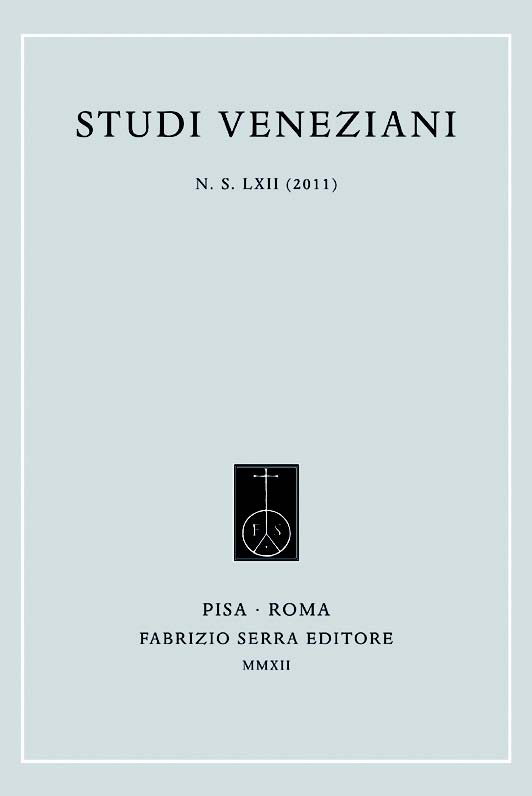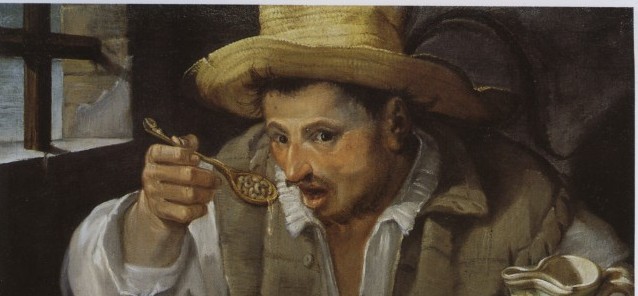Studi Veneziani, LXVII, 2013
Edited by L’Istituto per la Storia della Societa e dello Stato veneziano
Fabrizio Serra editore, Pisa-Rome 2014
Contents
Introduction
Venice and the Mediterranean
Jean-Claude Hocquet, Avant-propos. Venise, carrefour d’un monde qui avait change
I La guerre
Ruthy Gertwagen, Venice, Genoa and the fights over the island of Tenedos (late fourteenth and early fifteenth century)
Louis Sicking, Selling and buying protection. Dutch war fleets at the service of Venice (1617-1667)
Katia Occhi, Commercial networks from the Alpine valleys to the Mediterranean : the timber trade between Venice and Malta (16th- 17th centuries). First researches
II Transferts de population, acculturation, spiritualité
Ersie C. Burke, ‘…to live under the protection of your serenity’: immigration and identity in early modern Venice
Diana Gilliland Wright, The Kladas affair and diplomatic relations (1480-1485)
Daphne Lappa, Religious conversions within the Venetian military milieu (17th and 18th centuries)
Igor Šipić, The cult of St. Lucy. Venetian context and influence along Eastern Adriatic
III Developpement économique, rivalités commerciales, progrès scientifique
Florence Fabijanec, Entreprendre sous le pouvoir venitien. La compagnie des Matafarić de Zadar durant la seconde moitie du XV ieme siecle
Gerassimos D. Pagratis, Venice, her subjects and ships. Continuity and discontinuity in Venetian mercantile and maritime policy and its impact on the shipping of the Ionian islanders during the 16th century
Vera Costantini, Fin dentro il paese turchesco: stabilimento della scala di Spalato e potenziamento delle reti mercantili e diplomatiche veneziane nell’entroterra bosniaco
Jean-Claude Hocquet, Une controverse sur les confins, Venise, Muggia et les salines de Trieste(XIVieme-XIXieme siecles)
Toni Veneri, ‘Theatrum Venetae negotiationis per Mediterraneum’: mise en cadre del viaggio (1524-1598)
Ruthy Gertwagen, Conclusion. New insights to the study of Venice and the Mediterranean
Notes and documents
Fabien Faugeron, Du bon usage du marche dans une congregation religieuse du xve siecle a Venise: les ‘spese di bocha’ de S. Giorgio in Alga
Gabor Mihaly Toth, ‘Ponderar diligentemente li costumi dei grandi’. Cultura dell’informazione in una relazione sull’Ungheria quattrocentesca con un diagramma da un codice bodleiano
Carla Boccato, Una guaritrice processata dal Tribunale del Sant’Uffizio di Venezia nel Seicento per eresia ed esorcismi
Rossana Vitale d’Alberton, Dalle memorie settecentesche del Magistrato alla Sanita, il complesso ruolo del Lido tra naviganti, pellegrini e soldati
Sergio Baldan, Valentino Panciera Besarel: due opere dell’artista bellunese a S. Giorgio Maggiore
Reviews
Federica Parcianello, Documentazione e notariato a Venezia…(M. Pitteri)
Studi… in onore di Giovanni Zalin, a cura di Giuseppe Gullino et alii (M. Pitteri) Giuseppe
Del Torre, Patrizi e cardinali… (M. Pitteri)
Alessandro Marzo Magno, L’alba dei libri… (M. Zorzi)
Stampa meretrix…, a cura di Franco Pierno (M. Zorzi)
Lucia Nadin, Migrazioni e integrazione… albanesi a Venezia...(M. Simonetto)
Giavera del Montello una chiesa e la sua comunita…, a cura di Francesca Cavazzana Romanelli et alii (M. Pitteri)
Donato Giannotti, Della Repubblica fiorentina, a cura di Thea Stella Picquet (L. Faggion)
Claudio Povolo, Il movente. Il giudice Bernardo Marchesini… (G. Pellizzari)
Daria Martelli, Polifonie. Le donne a Venezia nell’eta di Moderata Fonte… (T. Plebani)
Precenicco. Una comunita nella storia, a cura di Edi Pozzetto (M. Pitteri)
Paolo Sarpi. Politique et religion en Europe, ed. Marie Viallon (G. Trebbi)
Liturgie di violenza lungo il Lago. Riviera del Garda tra ’500 e ’600, a cura di Claudio Povolo
(M. Pitteri)
Danilo Gasparini, Serenissime campagne … della Terraferma veneta (M. Pitteri)
L’impegno e la conoscenza. Studi … in onore di Egidio Martini (D. Tosato)
Giulia Vertecchi, Il ‘ masser ai formenti in Terra Nova’…, a cura di Filippo Pedrocco, Alberto Craievich (A. Zannini)
Antonio Colbertaldo, Storia di Caterina Corner regina di Cipro…, a cura di Daria Perocco (G. Pellizzari)
Paul Scheuermeier, Il Veneto dei contadini 1921-1932, a cura di Daniela Perco et alii (M. Pitteri)
